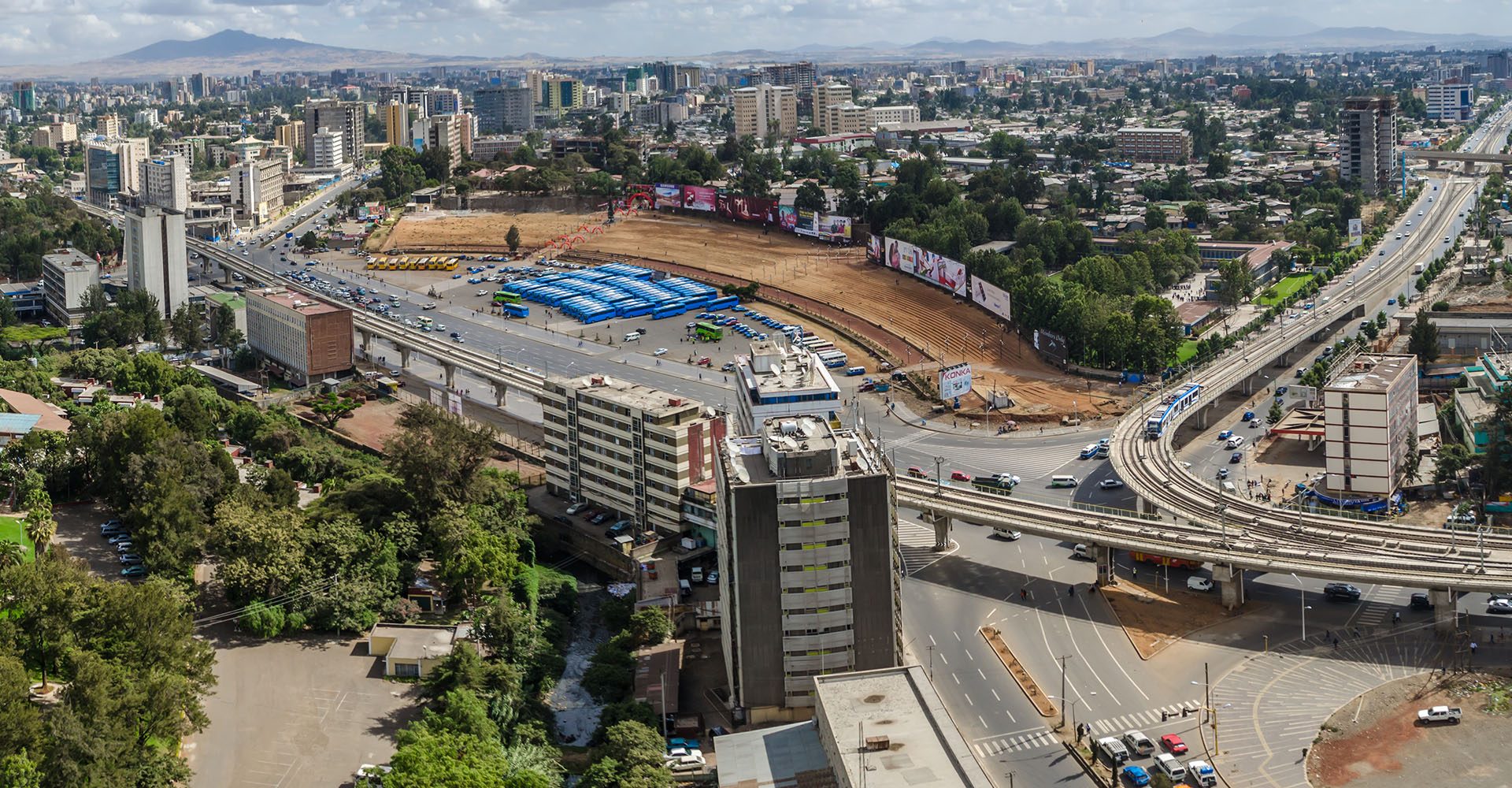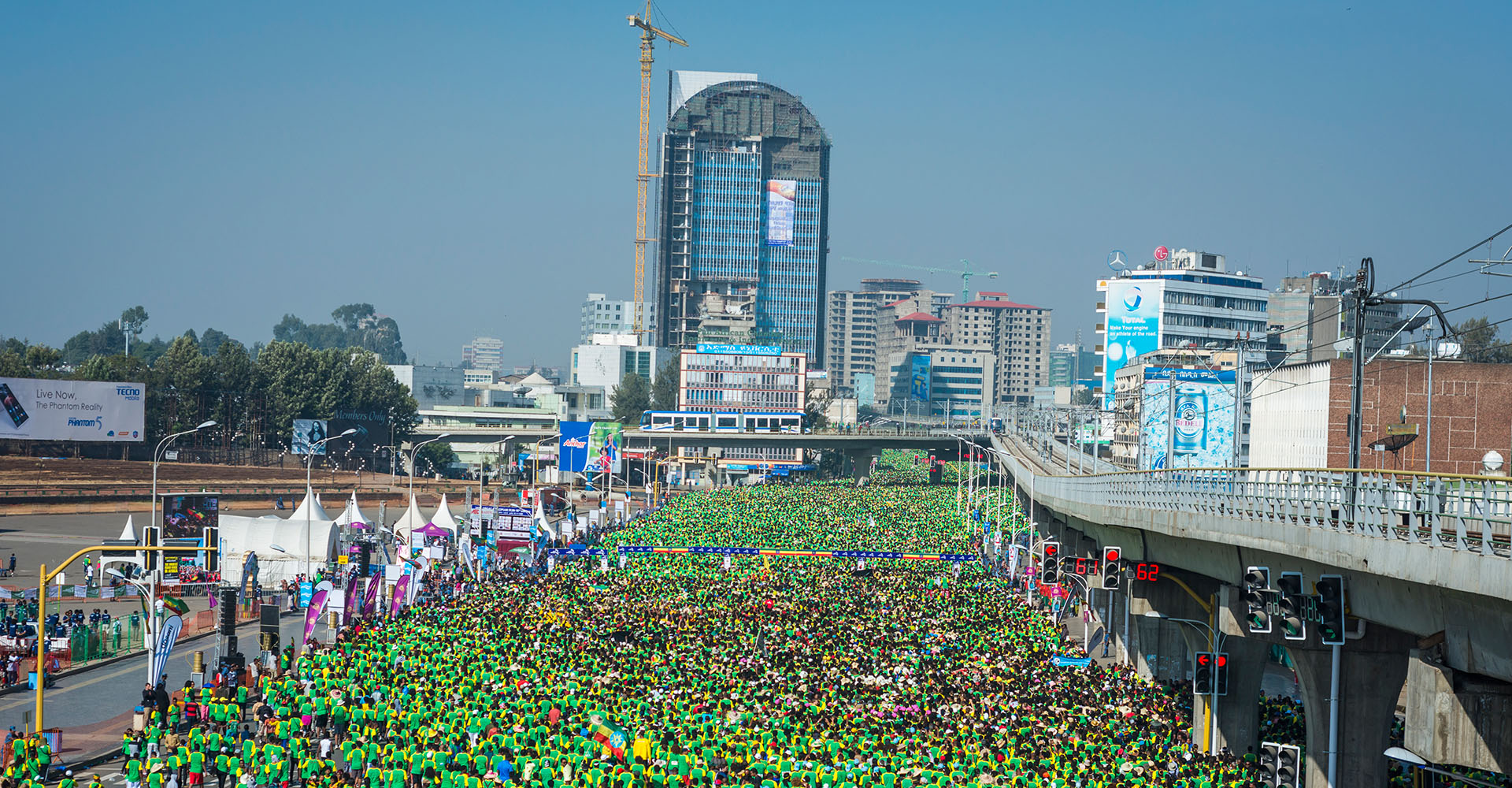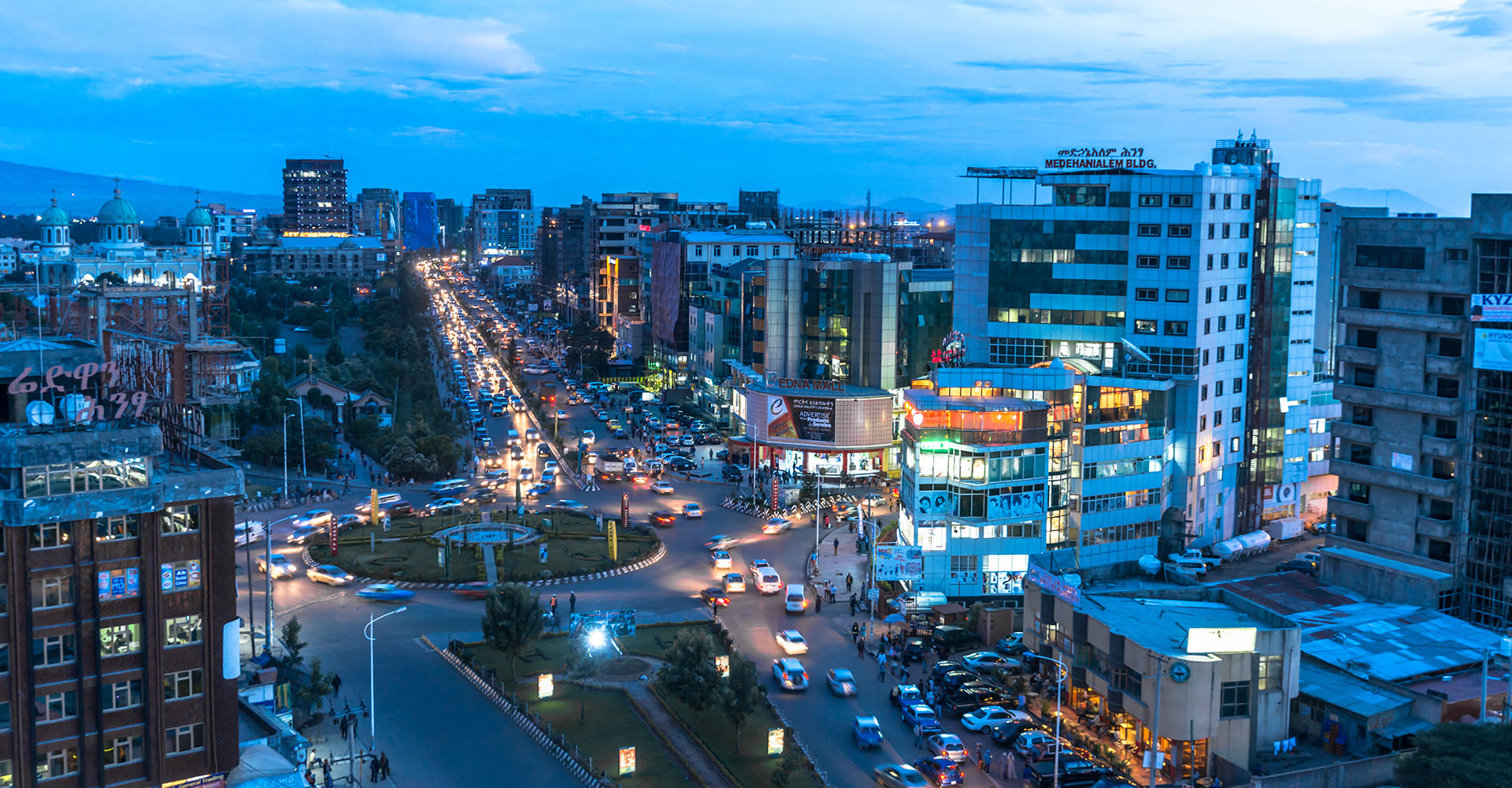Addis Ababa was established in 1887 during the reign of Emperor Menelik. The location of Addis Ababa was chosen as a place to live in by the Empress Taytu Betul. It has only been the capital of Ethiopia since the late 19th century. This city wasn’t so hospitable, however, with cold temperatures and little firewood. Because of this, the capital city was changed. The name Addis Ababa means “New flower” in Amharic (Amharic: አዲስአበባ), and was given this name by Empress Taytu Betul. In 1905, the Emperor Menelik imported a large number of eucalyptus trees, which he planted along the streets of the city - these are still visible today. Several social institutions were established following the birth of the city. The following are worth mentioning: Empress Taytu hotel in 1908, Emperor II Menelik school and hospital from 1909-1910. Other institutions such as postal, telephone, telegram and hydroelectric power services as well as the Ethio- Djibouti Railway were introduced during the time of this great king.
Before the advent of Addis Ababa, there were many sites in the surrounding areas that had been used as temporary capitals for the Kingdom of Shewa.Ankober, a site about 160 km north of Addis Ababa, served as the capital of the kingdom of Shewa during the second half of the 18th century. As evidence, the ruins of the palace are still found on the lip of the great escarpment, which is popular in its breath-taking view. The village of Aliyu Amba, which was the most important market center of the Shewa Kingdom, is also located below Ankober palace at one of the broken hills. Other areas, like Wechecha, Yerrer and Entoto were also temporarily used as capitals of the Shewan Kingdom.
Addis Ababa was the capital of Italian East Africa from 1935 to 1941. During this time, modern stone houses were built, many roads were paved, a water reservoir was established in Gefarsa to the west, and a hydroelectric station was built in Akaki to the south. In 1941, the city was abandoned by the Italian colony, which moved instead to Amba Alagi, and the city was liberated, in time for the return of the Emperor Haile Selassie I, the Organization of African Unity in 1963, founded and made its headquarters in Addis Ababa. This organization was ended in 2002, and was replaced by the African Union, a continental union that consists of 54 countries in Africa, and is the current union for Africa today.
Today, Addis Ababa is the capital of Ethiopia. It is split into 10 sub-cities and 99 wards. Addis Ababa is also the headquarters of the African Union and the United Nations Economic Commission for Africa. Ethiopia’s official airline, Ethiopian Airlines, has its main headquarters at Bole International Airport in Addis Ababa. Addis Ababa is often referred to as the political capital of Africa because of its historical, diplomatic, and political significance for the continent. Because of this, the city hosts several international conferences and meetings toping the highest in conference tourism of the continent. Addis Ababa is a sister city with cities in many countries, including Israel, China, Germany, Thailand, Italy, Turkey, The United Kingdom, Egypt, Sweden, The United States, and others.
Addis Ababa is a sprawling city, well wooded, especially with eucalyptus tress and crossed by broad avenues. Modern, multistoried buildings sit side by side with traditional one-two story structures and open spaces. These buildings host international branded hotels, international organizations offices and luxury malls for retail and office outlets.
Recently inaugurated, the Addis Ababa light rail train crosses the city in two paves serving thousands of passengers every 6 minutes of the round. These trains go on the ground, under ground roads and up stairs regarding the main roads infrastructure. It is the new color of the city with an interesting landmark in addition to the easing the life of the people. Other modern public city transports serve in different lines of the city i.e. buses, taxies and meter taxies with an estimated tariff.
Housing in Addis Ababa is intensively increasing as government owned apartments are supplied to the locals in shortly; privately owned real estate owners are investing well in luxury apartments, villas and town houses and also residents are building their own homes on the surroundings of the city. Down town residents are re-located in the borders as the downtown is reconstructed in business centers and national based organizations.







